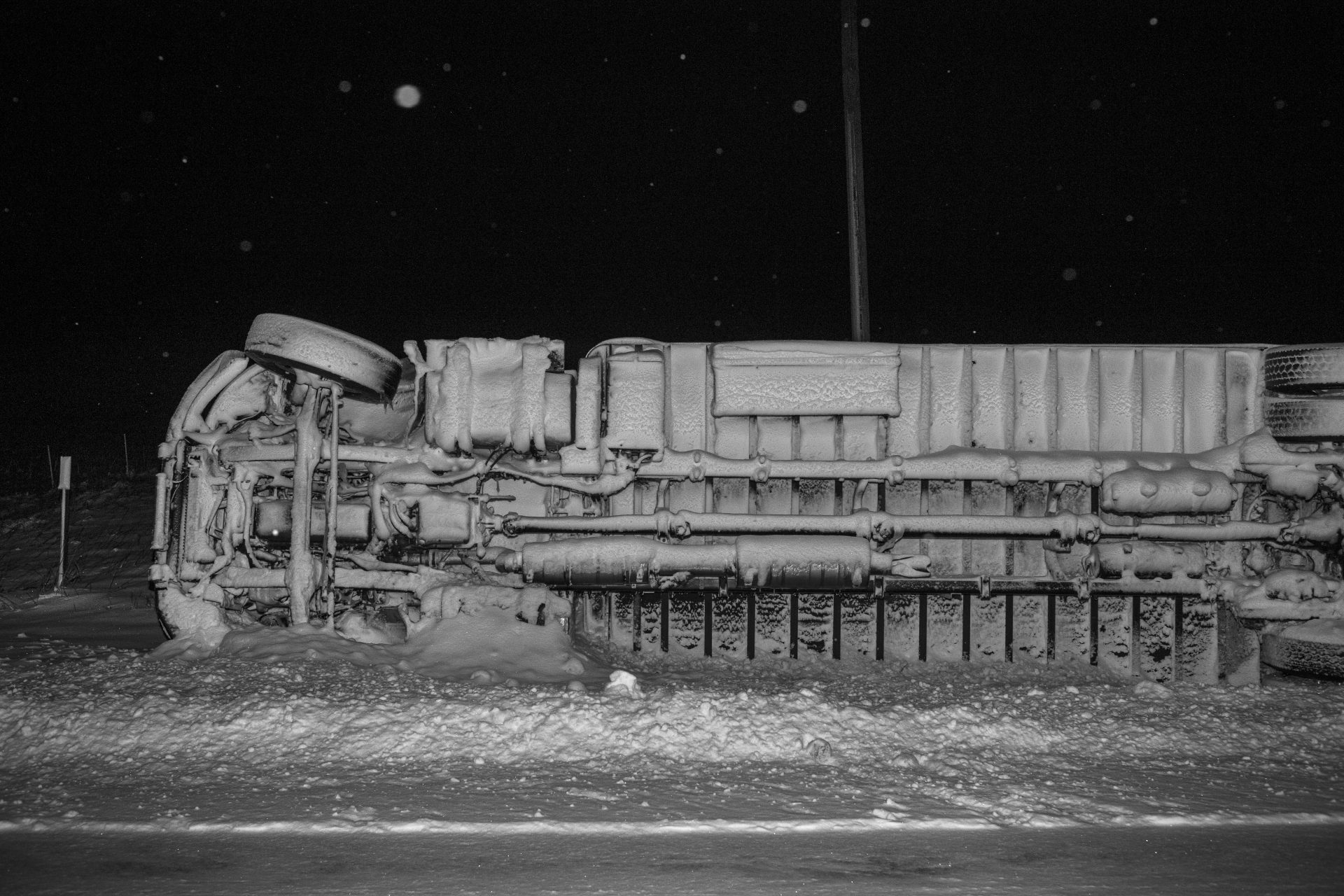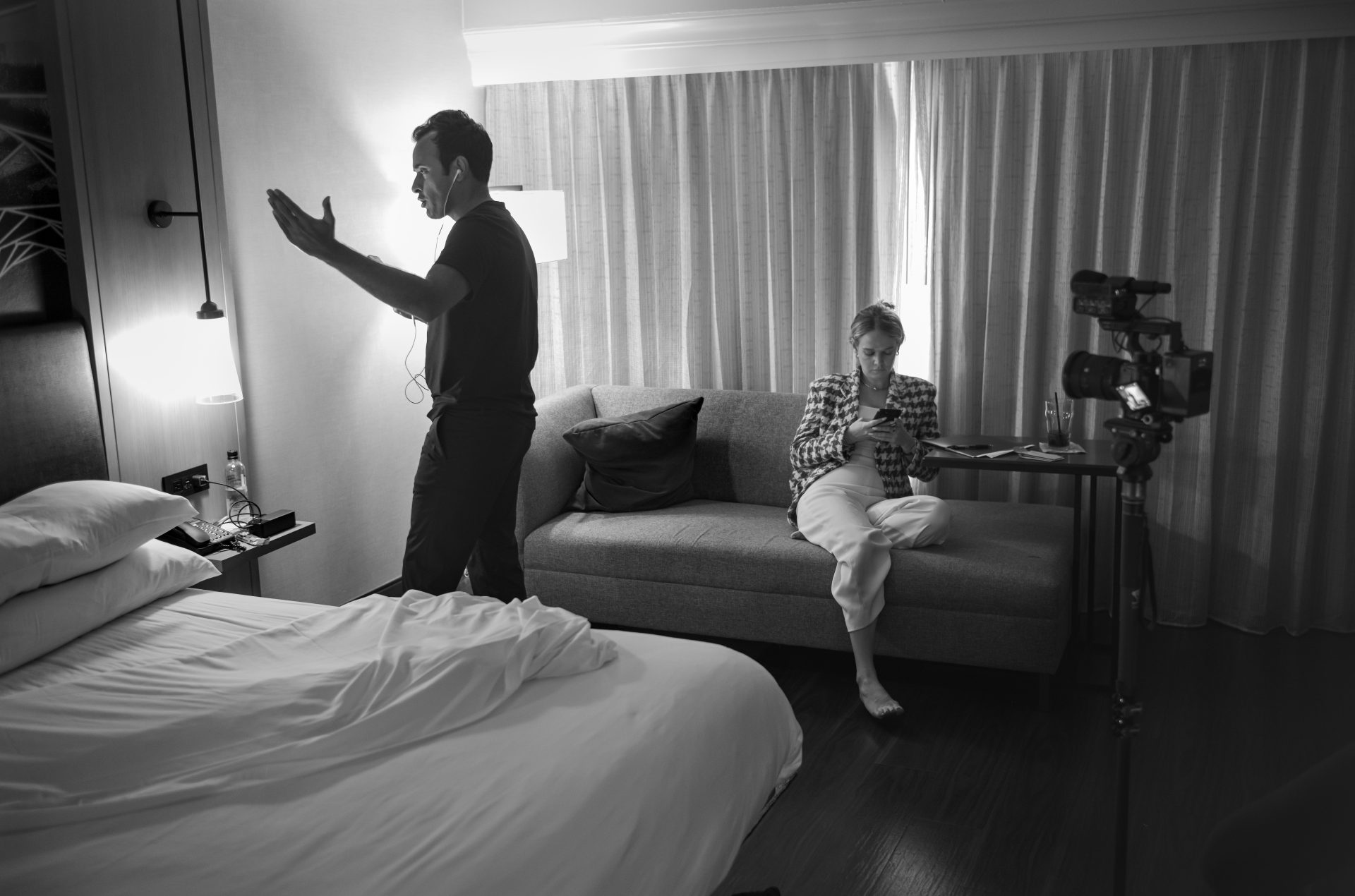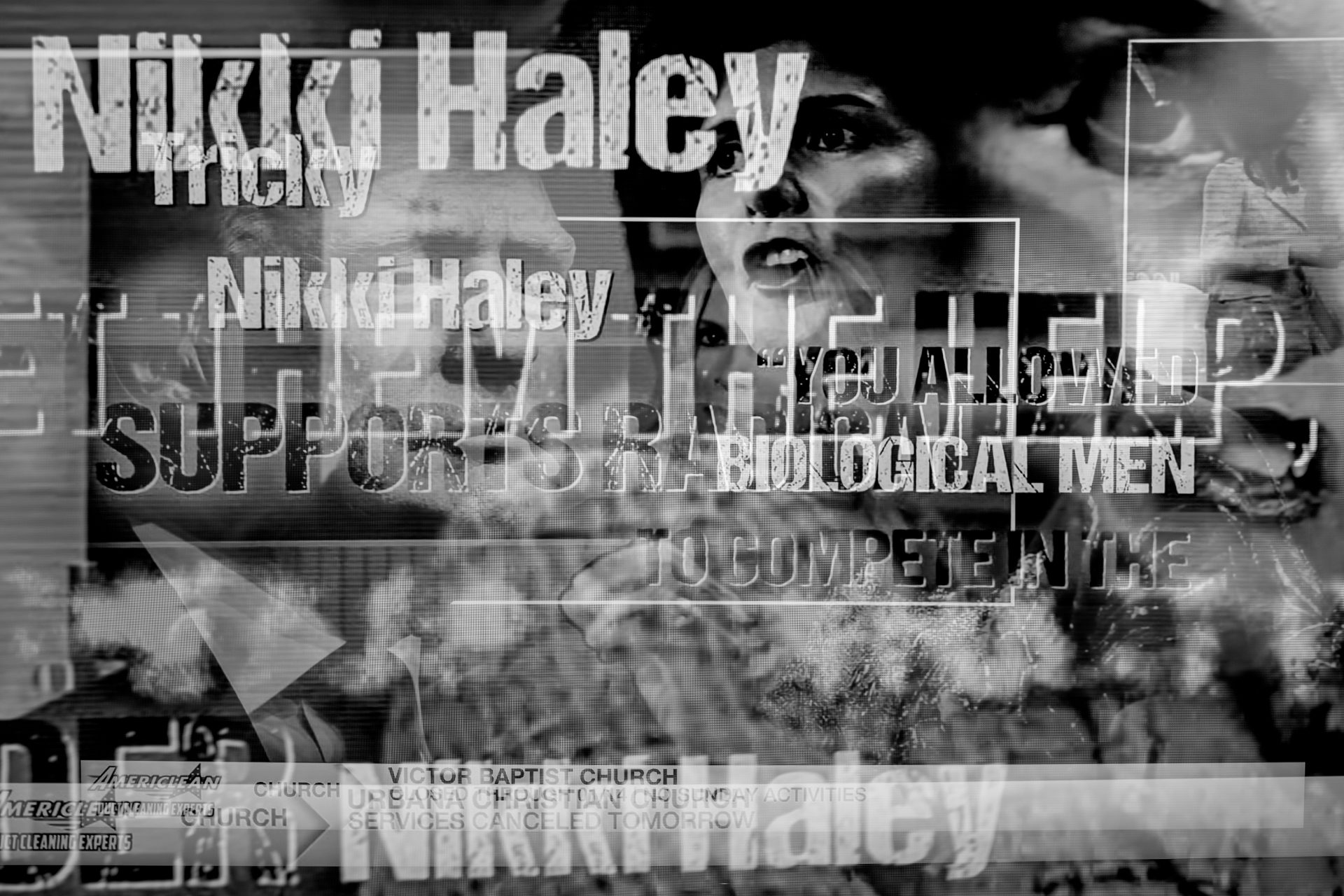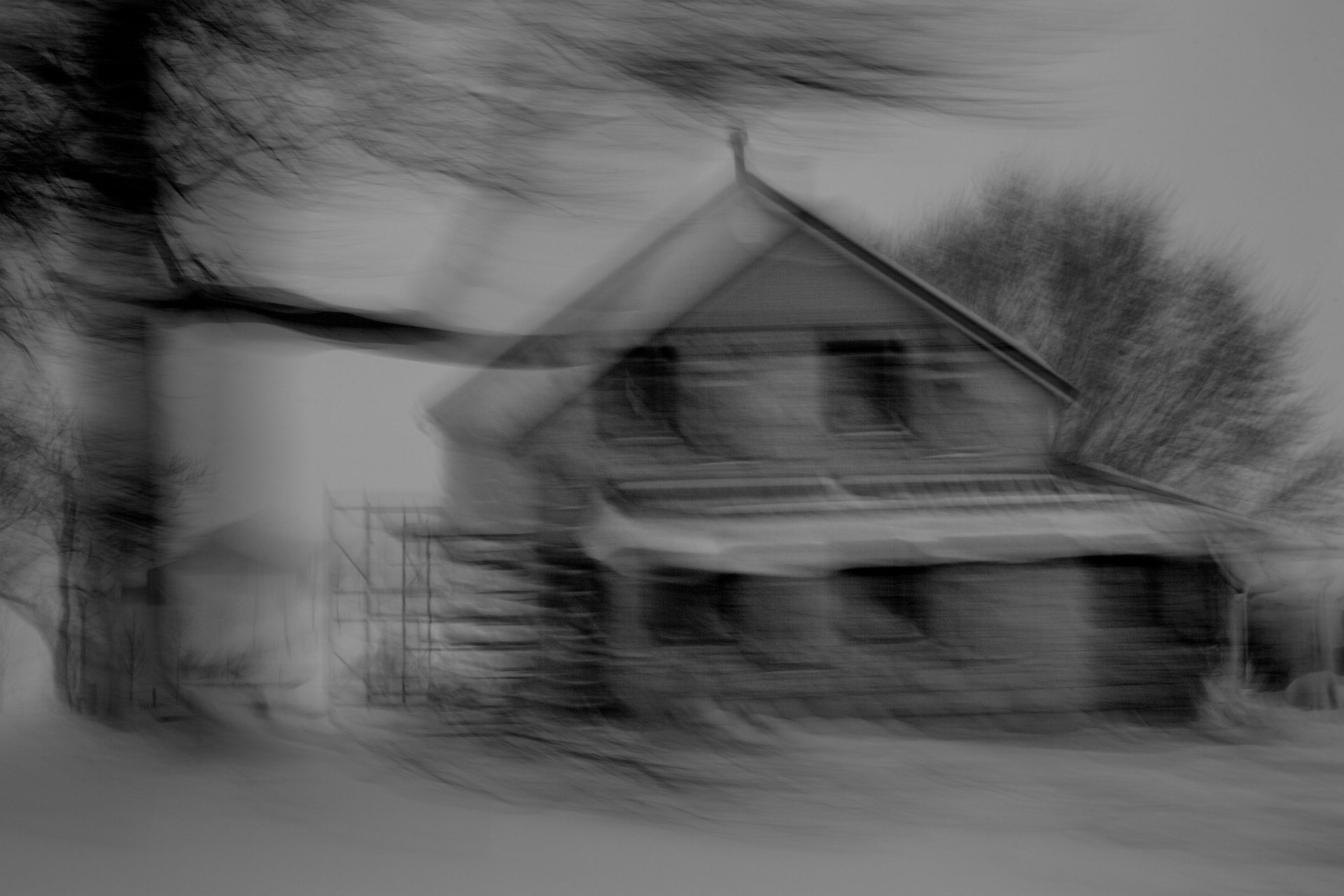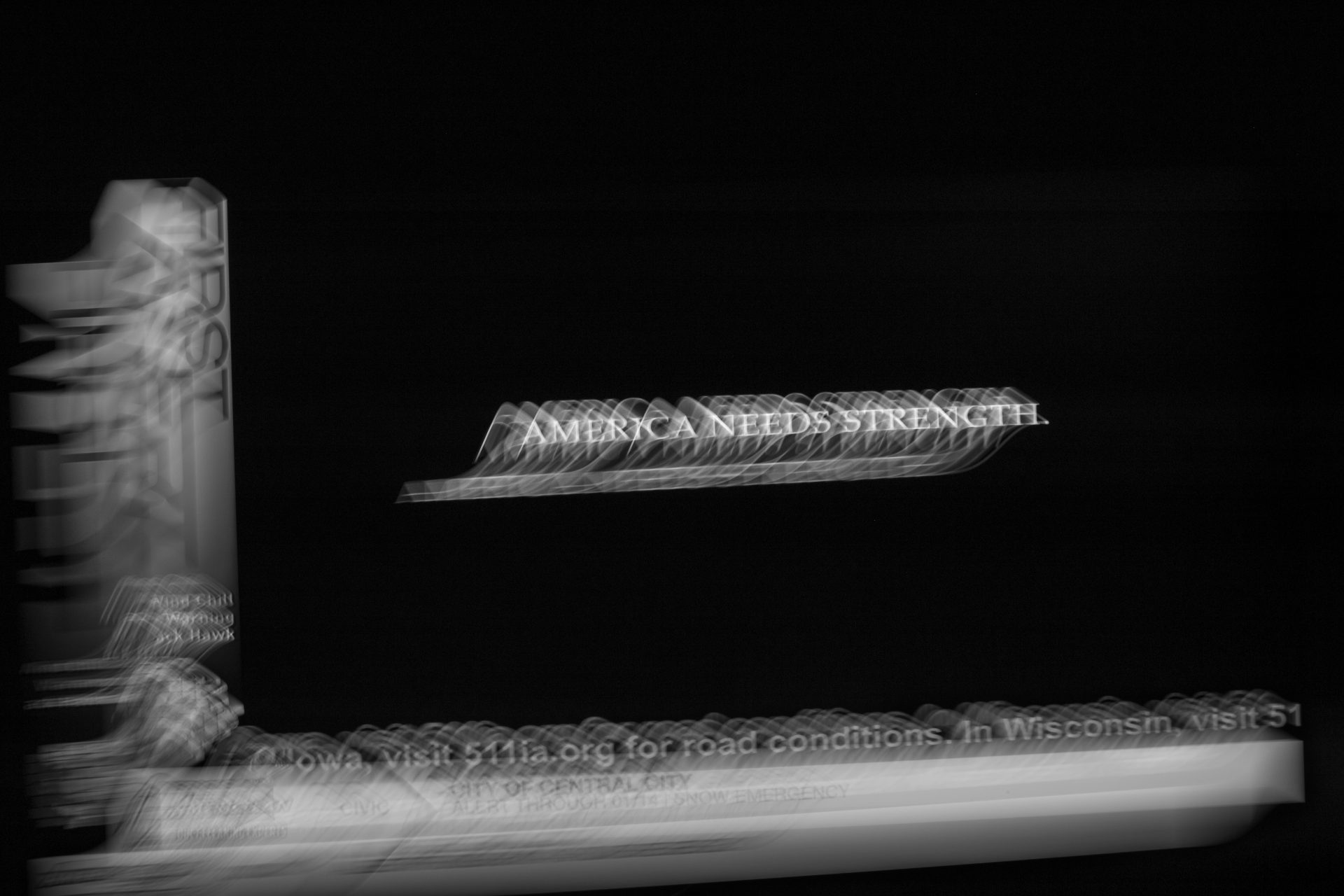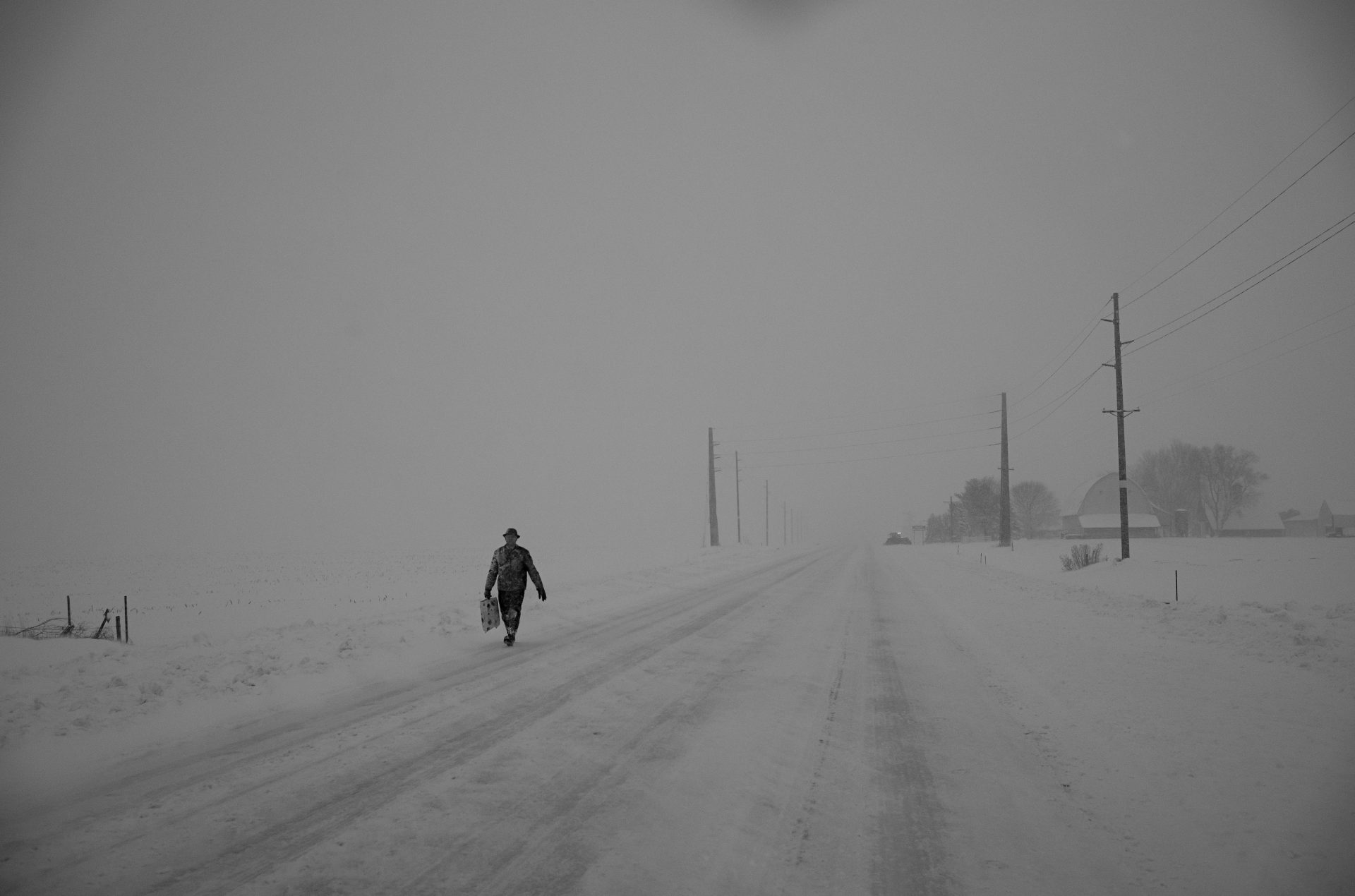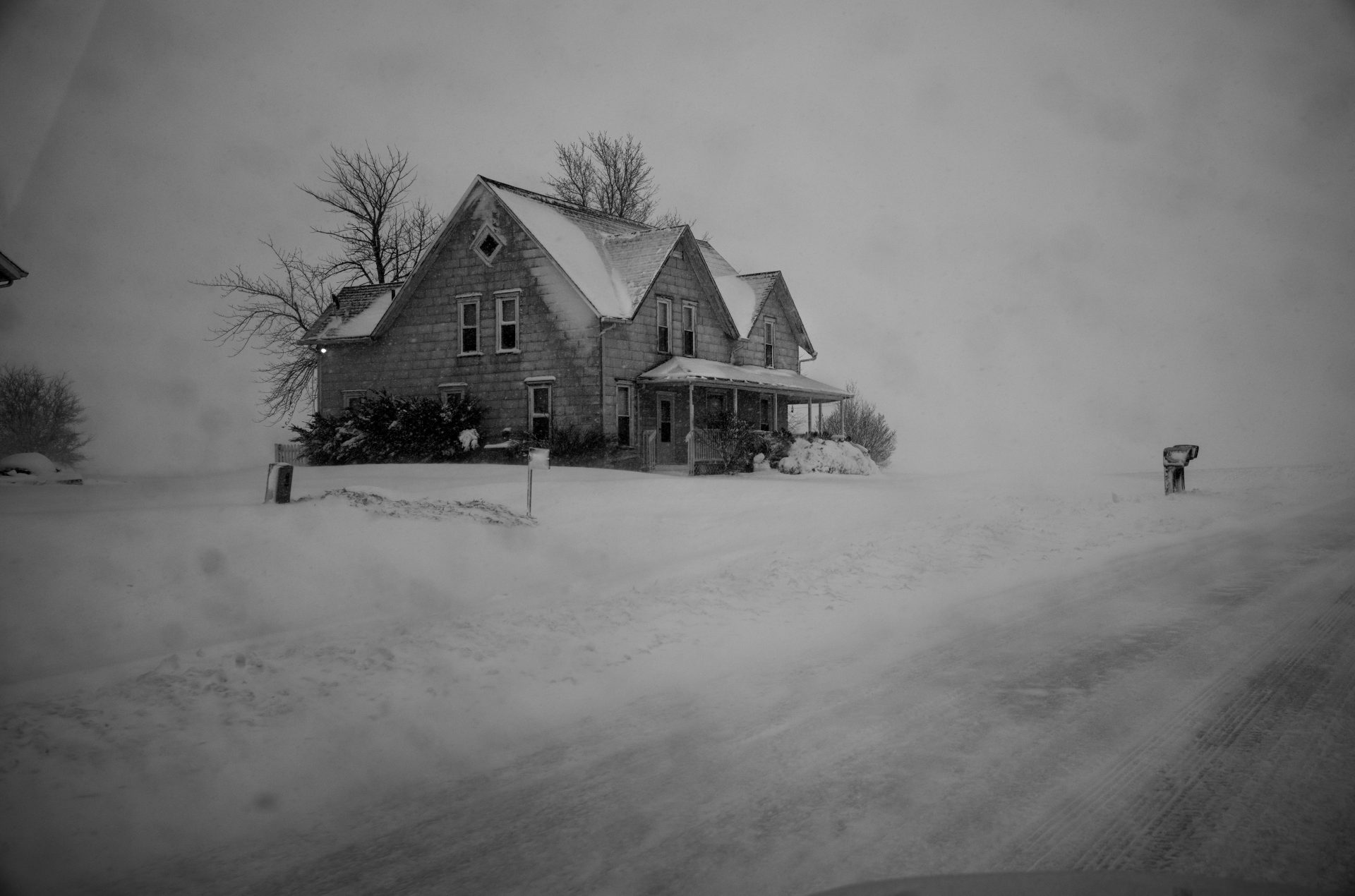
Politico Magazine recently published Danny’s poignant essay titled Iowa’s Frozen Caucus, vividly depicting the resounding sense of loss and disconnection he experienced during this year’s Iowa caucuses. Danny sat down with fellow VII Photo contributing photographer Ashley Gilbertson to discuss the work.
Ash: I’ve been shouting from the rooftops about you since Politico published your Iowa’s Frozen Caucus essay, so let’s put that to bed before you start believing it. I mean, our therapists have to pay rent, too.
We had a lot of colleagues doing strong, important work out there, but your work felt different – in fact, nothing anyone produced looked anything like it. I don’t know about you, but I’ve always loved reviewing everyone’s work after a job, knowing we all see the same elements and creating very different narratives.
Your work appealed to me deeply. I felt a deep sense of loss in the work, as though you were writing a poem to an Iowa that exists today, reminding her of days past. Those bitter cold homes in the snow; images with movement and veils showing me something, but nothing clearly; people who look alone, somehow dislocated from the actual event taking place. Does this ring true at all?
Danny: I sure have paid for lots of rent, too, brother! Thank you for the kind words, and a mountain of thanks goes to Katie Ellsworth at Politico Magazine as well as Krishna Sheth at The Economist’s 1843 magazine. I have had the fortune to cover the Iowa Caucus five times, starting with the packed field of Democrats and Republicans running in 2008. My editor at the time was TIME’s MaryAnne Golon. MaryAnne encouraged me to follow my own path for each photograph I made and to always remember I was photographing home (Iowa). More often than not, I missed the mark, but she gave me the freedom and time necessary to develop through that failure. What a gift that was, and whenever I cover politics, MaryAnne’s voice is in my head.
I’m happy that the sense of loss registered strongly for you. There are many emotions playing into the essay. It felt like there was next to no energy this time around, and many people’s minds were already made up. There was also the loss of Democrats campaigning simultaneously, campaigns that worked to capitalize on a narrative of being at war with the “liberal media,” and no more time or attention for quiet events where difficult questions could be asked by Iowa voters up close and personal.
And then there’s the media’s role in the national fiasco that is politics today: cable news programs preaching to their choir, attack ads, screaming politicians, and even louder screaming pundits looking to one-up each other. Compromise to get shit done has been thrown out the back door in U.S. politics, and even hinting at it can bring a primary challenge backed by millions of dollars for the political hit.
For many years now, there have been political fights at family holidays, over social media, and throughout our communities to the point of nausea in this country. What there was in Iowa: canceled events due to snowstorms during the runup to caucus night, the collisions and rollovers on the highways and interstates, the uninterested voters seemingly just going through the motions, and an almost painful quiet that was only drowned out by distorted 80’s rock over the speakers. An older gentleman approached me at a campaign stop in Cedar Falls and shouted in my ear, asking if I could get them to turn the music down. I thought for a second and realized I wasn’t sure I wanted to hear how little people had to say. Thankfully, the music stayed loud.
I have much respect for what many of our colleagues produce on the campaign trail, and it’s a blast to take it all in. That said, I have always pushed myself to stay outside the bubble, even when working behind the scenes. I remember telling campaign staffers in 2007, when asking for exclusive access, that I would photograph whatever happened, good or bad, win or lose — and to expect that no matter what. I assumed being upfront would cost me access at some point, but honestly, it never has. If a situation feels positive, that will come through in the photographs. If a situation feels negative, that negativity will be there. Following that energy sometimes pulls me close. Other times, it allows me to drift away from campaign stops and find unexpected moments that speak more clearly about issues and emotions than stage-crafted scenes loaded with political theatre.
One thing I love about musicians is how they honor those that came before them and their contemporaries. Photographers don’t do that enough, and it drives me crazy. Notes, beats, words … all part of a known musical language that came before and influenced the next songs, albums, and live performances. I have a long list of photographers and their albums of images that have seared a lasting impression on my approach. With politics, that influence is right here in VII Photo. Christopher Morris’ work covering U.S. politics during both terms of George Bush’s presidency influenced my approach to covering politics and gave me the confidence to continue searching on the periphery. His photographs of the troubled time are loaded with strength and weakness, promise and lies, love and heartbreak, and trauma and perseverance. Chris’ work is a document of a nation and its leaders at a moment defined by sacrifice and manipulation. His photographs spark a rollercoaster of emotions that matched the times. As a nation, and for me personally, the highs were extremely high, and the lows unbearably low then. Chris has the pulse of the United States during those years in his photographs, and there is unbearable tightness in the chest with pain running down the left arm.
When supporters of a candidate come fishing for political allegiances they think I might have, I tell them one thing. I say it’s our job to keep a spotlight on all the dirty rascals in politics. Usually, that gets a smile or, “hell, yes.” With this essay, I felt it was my job to help people understand that many Americans are disconnected or overconnected. Too many of us are in camps with no room for compromise or humility. If my work slowed someone down and made them feel how far the Iowa Caucus has gotten from the idea of Iowans asking heartfelt questions and expecting candid responses from those seeking to run for president, I have done my part.
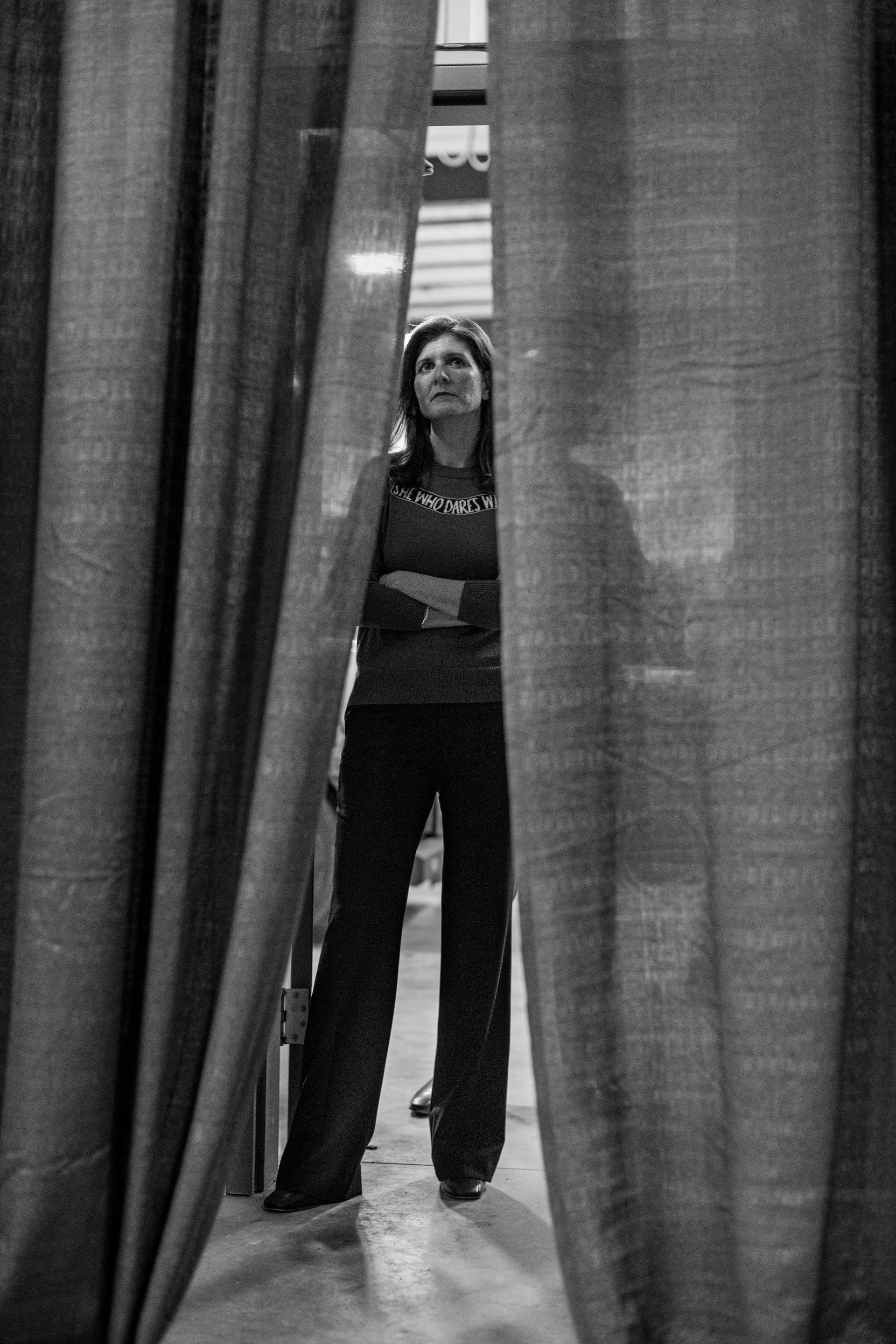
Ash: What’s your approach – is it a physical style of working, of proximity to the people and the story, or is it more philosophical?
Danny: The concept for the essay was the distance I was feeling and the overwhelming lead the former president had in Iowa. I pitched the idea to Politico Magazine with the title “Not Too Close.” The idea developed out of work I did on the campaign trail earlier in the year, as well as long conversations with colleagues about what everyone was seeing and hearing across Iowa. VII Academy alum Jordan Gale, who covers the Caucasus for the New York Times, and I talked a lot about how different it all felt, how dead the events felt. During the final two weeks, the feeling got even more intense as the bored faces of voters, attack ads on TV and social media, and 2020 Trump signs many never took down influenced not just my photographic choices but also the emotional and physical distance I had from the political process.
Ash: The only people who look excited in your Politico essay are the media –; Iowans seem nonchalant. In the text, you explain Iowans have been accustomed to a lot of personal contact with candidates, and that’s changed in the last couple of cycles. Are politicians and constituents both less engaged? How have you reacted as a photographer to this?
Danny: Turnout this year was low. Some blame those numbers on cold weather but don’t believe them. We are used to extreme cold in Iowa. Only a little over fourteen percent of Iowa Republicans participated in the caucuses. Iowa Public Radio reported that $124 million was spent on campaign ads in Iowa by Republican candidates. That means $1,124.00 was spent per vote with a turnout of just over 110,000. It takes large amounts of money to try and reach people, giving those with wealth an unfair advantage in the nation’s political circus. So many Iowans seemed to turn off this time around, and that scares the hell out of me. It makes the rich and powerful very happy.
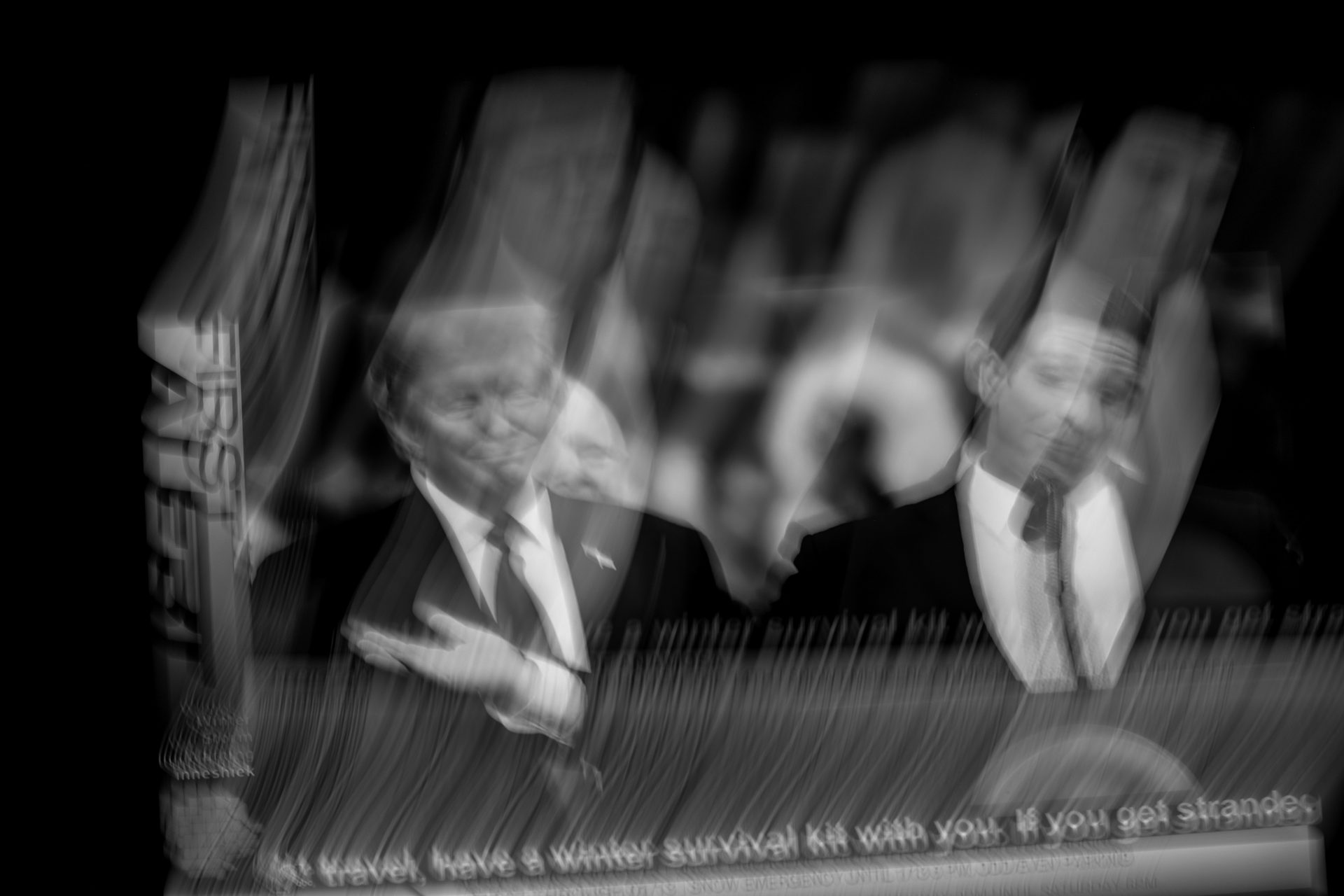
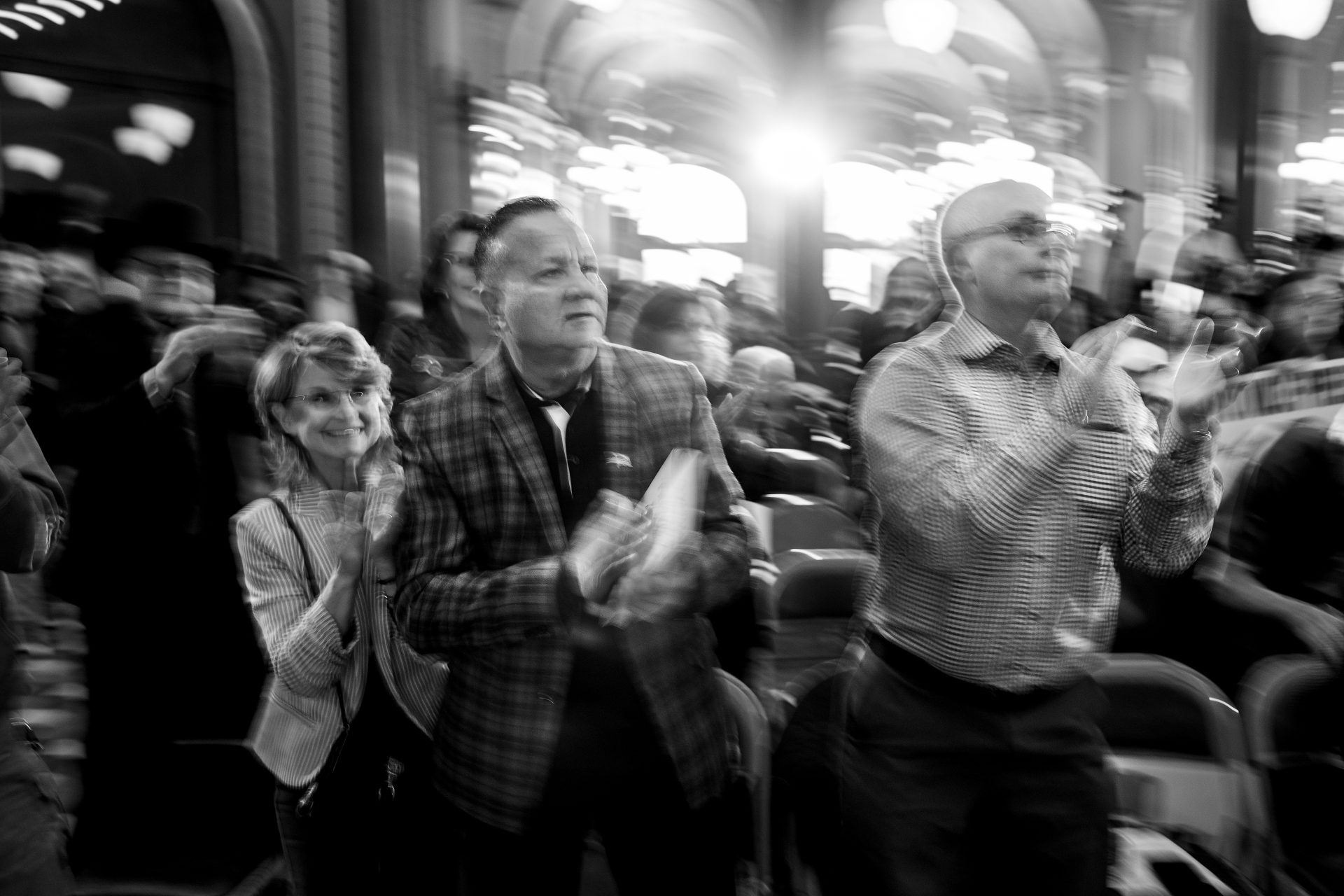
Ash: The pictures give a sense of loss, of heartbreak — was there an intention behind this?
Danny: When I was in the field, I was reacting to the environment I found myself in. While editing, the sense of loss, isolation, and distance was staring me in the face. I embraced it.
Ash: As an Iowan, can you relate to this sense of heartbreak? And if it feels like a lost cause, why keep working to cover it?
Danny: Heartbreak – there’s a massive can of worms. I don’t think Iowa will ever have both parties starting their nomination process here again. The list of reasons for that being the case is long and much of it I don’t disagree with. That said, there was something unique to the process here in Iowa, but that in-person connection with voters seems like a lost cause. Campaigns can tightly control the narrative through political ads and social media messaging. There were numerous events this year where the number of campaign staffers working on messaging seemed over double the number of independent journalists covering the event. And that there was another loss staring me in the face. As small towns across the state lose their local newspapers, there are fewer and fewer journalists at campaign stops. My heartbreak comes because history repeats itself, and the undereducated and underemployed have been manipulated many times throughout history. You were front and center when Donald Trump worked supporters into a frenzy on January 6th. Maybe the nation’s critical thinking skills are sharp enough now to question authority and not blindly follow political leaders of either party in the U.S. I truly hope so…
